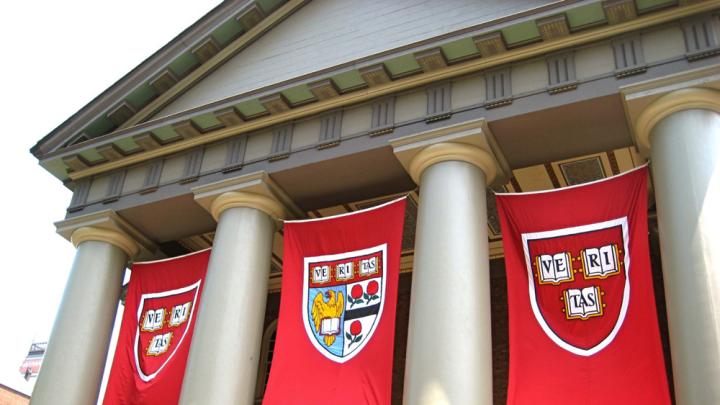The first day of fall classes was damp and overcast. On the lawn in front of Memorial Church, the folding chairs from Tuesday’s Convocation were being cleared and stacked. Inside, per Harvard tradition, President Drew Fast opened the academic year by speaking at Morning Prayers—her last time doing so; she will step down in June 2018.
The day’s reading from the Appleton Chapel Psalter began with a line from the Upanishads: “From the unreal, lead me to the real.” This set the tone for Faust’s remarks, which she framed as an opportunity to step back from the demands of a new semester to reflect on the University’s purpose. “What is the compass that we steer by?” she asked. “Where is our North Star?”
Faust stated that the University’s central value was “the pursuit of truth as our common purpose.” She also reaffirmed that “our diversity offers us the strongest possible foundation for our strength,” and that members of the community have both obligations to each other and to something greater than themselves.
She went on to comment on events from the summer, specifically those from a few weeks earlier, in Charlottesville, Virginia, where “we have seen loathsome demonstrations of hatred and violence, reviving the most shameful episodes of the past and foregrounding the very worst of what we have been and regrettably still are as a nation.” Faust grew up in the 1950s in Virginia, she told the audience, where public schools closed rather than comply with Brown v. Board of Education. She noted how the state has progressed since then, integrating its schools, electing a black governor, and voting for a black president. “But on August 12, I saw white supremacy resurgent, setting its sight on a university town with values like our own to mount its challenge and advance its evil and its cruelty.”
What can be done in academia to combat bigotry? Faust cited, as examples, the study of implicit bias and exploring “the connections between intolerance and burgeoning economic inequality.” Universities could also investigate how education can “mitigate the cruelties of racism, and prepare students to serve as agents of the rule of law.” But they cannot accomplish any of these purposes, she warned, “in a world where people are categorically excluded, where minds are closed or overtly hostile to differences of perspective or experience or identity, where violence and threats replace rational discourse and exchange.”
Faust urged: “We must condemn the racism that feels free to speak in a way it hasn’t for nearly half a century. We must denounce the Nazism and anti-Semitism that my father and so many others of his generation risked their lives to defeat. We must affirm the full citizenship of LGBTQ Americans, including their right to qualify for military service.” Education, she emphasized, “serves as the arteries of a just society.” These fundamental values, she reminded attendees, should not be taken for granted. “Let us rededicate ourselves to their defense.”
Before her remarks, the president also asked those present to pray silently for the people in Texas and Louisiana being affected by Hurricane Harvey, and to think of what they could do to help in the time to come.








